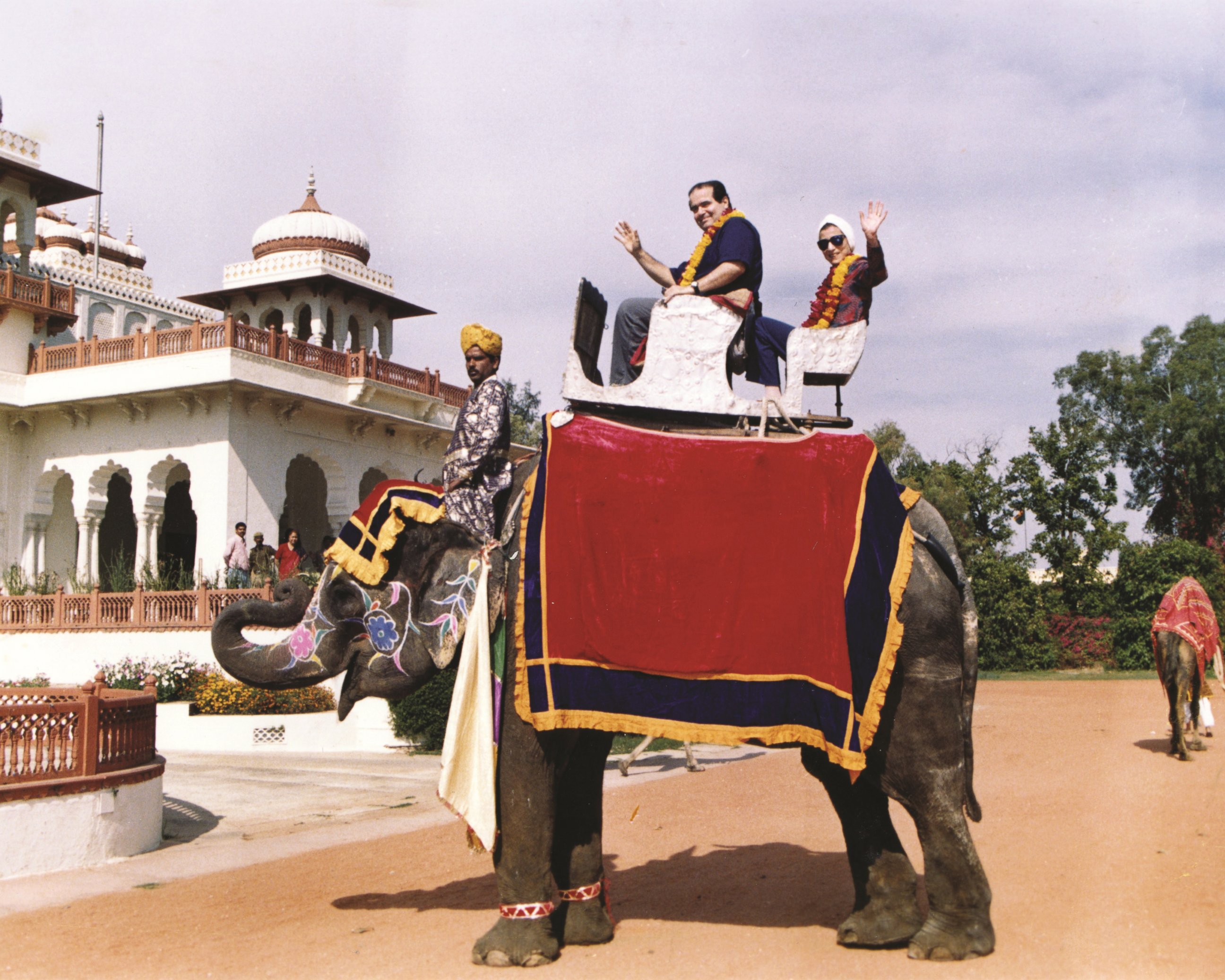Ginsburg modeled civility in friendships with conservatives: Reporter's Notebook
She had a famously warm relationship with Antonin Scalia.
Nestled among the law journals and family snapshots lining the bookshelves in her chambers, Justice Ruth Bader Ginsburg kept a prized photo that is as captivating as the friendship, respect and collegiality it came to symbolize.
Ginsburg would light up every time she’d reminisce: It was 1994 in India when she -- the liberal icon -- and Justice Antonin Scalia -- the conservative icon -- climbed atop an elephant together and went for a ride. The ideological polar opposites are seen flashing smiles and waves.
"It was a rather bumpy ride," she recalled in a 2015 joint appearance with Scalia, with whom she regularly sparred over legal doctrine.
"Some of her feminist friends gave me a hard time because she rode behind me on the elephant," he interjected at the time.
"The driver explained it was a matter of distribution of weight,” she quipped back with a smile.
As Ginsburg’s death reignites an intensely partisan national debate over the court, the late justice’s legacy as a bridge-builder and advocate for civility and decency stands in stark relief.

Her friendship with Scalia, who died in 2016, was legendary and unrivaled, becoming the subject of a comic opera “Scalia/Ginsburg” that underscored a collective sense of wonderment at the relationship in a divided America and high court bench.
She publicly lamented the growing acrimony in public discourse, especially during the confirmation process for new court nominees.
“Watching the most recent confirmations,” she said in 2017 shortly after President Trump named Justice Neil Gorsuch to the bench, “I wish there was a way that we could wave a magic wand and get back to the way it was and the way it should be.”
But Ginsburg did more than wish.
To those who watched her at work most closely, Ginsburg quietly sought to be an example. She was rarely personal in her criticism of opponents’ arguments or in questioning during oral arguments, where she was often the first to speak.
Her dozens of opinions and dissents were famous for their complexity and clarity of reasoning, strongly worded at times, but never disrespectful.
“She was the essence of grace, civility and dignity,” said Justice Clarence Thomas, the court’s most senior member and a conservative with whom Ginsburg had a close personal friendship. “She was a superb judge who gave her best and exacted the best from each of us, whether in agreement or disagreement.”
While outside the court, her supporters cheered her as a champion of progressive policies and her critics derided her as an unelected activist, Ginsburg in reality considered herself neither.
She often told audiences of young law students, scholars, advocates and reporters that she considered her role to be a “judicial minimalist” and a champion of “judicial restraint,” which she defined as a desire to keep the court out of grand policy debates that would be better solved with laws passed by elected legislators, if possible.
It was a sliver of philosophical common ground that she shared with Justice Thomas, who always could be spotted tenderly helping Ginsburg step down from the bench after its public sessions in the courtroom. The allegations of workplace sexual harassment that dogged Thomas' 1991 confirmation -- or spitfire condemnation from liberals -- never seeming to get in the way.
One of the most surprising and defining features of Ginsburg’s final years was arguably her public friendship with Justice Brett Kavanaugh -- the court’s newest conservative justice, whose own confirmation was engulfed by a partisan firestorm and accusations of sexual assault.
While women’s rights groups campaigned to get him impeached and Democratic senators vowed revenge, Ginsburg repeatedly went out of her way in public appearances last year to praise her new colleague as “very decent and very smart.”
“He’s a very collegial fellow,” she said.
For his part, Kavanaugh returned the compliments, hailing Ginsburg last year before an audience of conservatives as an “inspiration.”
"They are patriots," Kavanaugh said of Ginsburg and his liberal colleagues. "They love our court and love our country."
Ginsburg’s determination to show that collegiality and civility are still possible -- in even the seemingly most unlikely circumstances -- remains a shining example as another epic and divisive political battle takes shape over her replacement.
Editor's note: This image of Justices Antonin Scalia and Ruth Ginsberg riding a elephant in India in 1994 also appears in the book, "Notorious RBG: The Life and Times of Ruth Bader Ginsburg."




